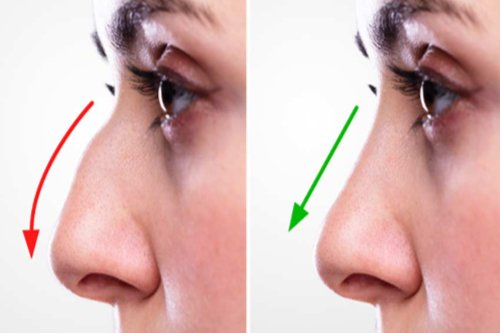Brain and ENT Clinic – Dr Lalit Mahajan In Nagpur & Dr Rachna Gangwani Mahajan In Nagpur
Septoplasty in Nagpur

Septoplasty in Nagpur is a surgical procedure designe to correct a deviate septum. The septum is the thin wall of cartilage and bone that divides the nasal cavity into two nostrils. When the septum is significantly deviate, it can obstruct one or both nostrils, leading to breathing difficulties, snoring, and other relate issues.
- Septoplasty is performe to straighten and reposition a deviate septum, improving airflow through the nose.
- It is often done to alleviate symptoms such as nasal congestion, difficulty breathing, and recurrent sinus infections.
Symptoms of Septoplasty
Nasal Congestion: Persistent or chronic nasal congestion, especially if it is more pronounc on one side.
Difficulty Breathing: Ongoing difficulty breathing through the nose, particularly during physical activities or when lying down.
Recurrent Sinus Infections: Frequent or chronic sinus infections that may be relate to impaire nasal drainage cause by a deviate septum.
Nasal Obstruction: Obstruction or blockage in one or both nostrils, affecting the normal airflow.
Snoring: Snoring may be exacerbate by a deviate septum, and septoplasty can sometimes help alleviate this symptom.
Facial Pain: Some individuals with a deviate septum may experience facial pain or headaches, especially in the sinus region.
Postnasal Drip: Excessive postnasal drip, which can lead to throat irritation and coughing.
Treatment of Septoplasty
Procedure Overview:
Anesthesia: Septoplasty is typically performe under general anesthesia, ensuring patient comfort throughout the procedure.
Incisions: The surgeon makes an incision inside the nose, avoiding any external visible scars.
Adjustment and Repositioning: Deviate portions of the septum are carefully adjust or remove to achieve proper alignment. The remaining septal cartilage and bone are repositione for optimal function.
Indications for Septoplasty:
Nasal Obstruction: Significant blockage of one or both nostrils due to a deviate septum.
Chronic Sinusitis: Frequent sinus infections resulting from impaire drainage.
Difficulty Breathing: Persistent difficulty breathing through the nose, especially during physical activity.
Recovery Process:
Outpatient Procedure: Septoplasty is commonly perform on an outpatient basis, allowing patients to return home the same day.
Post-Operative Care: Patients receive specific post-operative care instructions, which may include nasal irrigation and prescribe medications for pain management and infection prevention.
Return to Normal Activities: While recovery times vary, most individuals can resume regular activities within a week.
Benefits of Septoplasty
Improve Breathing: Septoplasty aims to enhance airflow through the nasal passages, alleviating nasal congestion and improving breathing.
Reduce Sinus Issues: By addressing the deviate septum, the procedure can contribute to a decrease in the frequency of sinus infections.
Enhance Quality of Life: Patients often experience an overall improvement in nasal health and well-being treatment.
